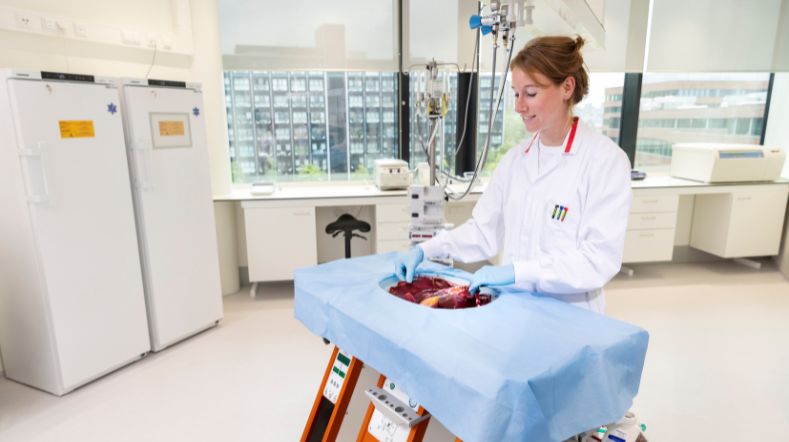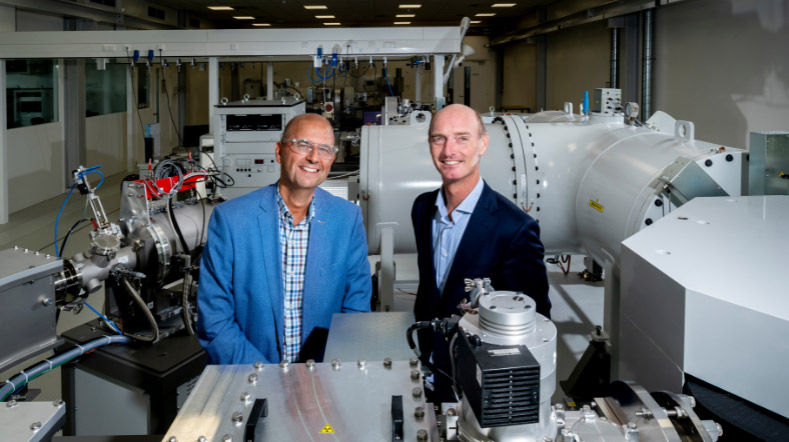
TNO helps accelerate drug development through insight
To find the most effective interventions for complex metabolic diseases, we must first understand the dynamics of disease onset and progression. Only then can key targets and optimal therapeutic windows for more effective treatment be defined. We spoke with Anita van den Hoek, Research Scientist for TNO Metabolic Health, about how TNO helps pharmaceutical companies accelerate drug development through better understanding of disease pathways.
Deeper insight
Metabolic diseases affect multiple organs and have complicated underlying pathways. As pharma companies explore potential interventions, insight into these pathways is vital. Such is the case with Non-Alcoholic SteatoHepatitis (NASH). ‘We have known for quite some time that there is a relationship between NASH and atherosclerosis,’ Anita says. ‘But the exact underlying cause of this association is still not fully understood. Is there a mechanistic link or a deeper relationship between the two?’
To that end, TNO recently published a paper in the International Journal of Molecular Sciences entitled ‘Unraveling the Transcriptional Dynamics of NASH Pathogenesis Affecting Atherosclerosis'. The underlying study aimed to find the molecular links between NASH and cardiovascular disease and gain more insight into the dynamics of key molecular NASH processes that drive atherosclerosis development.
Receive the publication
‘Unraveling the Transcriptional Dynamics of NASH Pathogenesis Affecting Atherosclerosis'
‘The study brought us closer to understanding the relationship between NASH and atherosclerosis,’ Anita explains. ‘We developed a list of key regulators that – if targeted with interventions – may have a beneficial effect on atherosclerosis as well. We also found previous literature that supports our findings. This is essential to further drug development, as certain candidate NASH drugs reduce fibrosis, but also have adverse effects for the vasculature and, for instance, raise LDL cholesterol. These compounds are clearly not ideal.’
Translational models for faster discovery
Studies like these can help save pharmaceutical companies time and money during development. ‘What we often see is that a candidate compound that works well in early mouse studies does not work at all – or has adverse effects – during later human trials,’ she says. ‘Since TNO’s models more closely mimic the human situation, and since TNO applies diets similar to humans’ to induce the disease, the models more accurately predict a compound’s viability. So, while the preclinical phase may take longer than a company is used to, the results are far more predictive and accurate, leading to more successful human trials.’
Expanding the understanding
TNO also engages in research that expands our current knowledge of common ailments. Case in point: until recently, sarcopenia (gradual loss of muscle mass and function) was considered a natural consequence of ageing. But it recently was reclassified as a disease. ‘Unfortunately, the majority of available research only focuses on male subjects,’ Anita says. ‘And while it has always been assumed that sarcopenia development was similar between males and females, there was little evidence to support that.’
Together with Wageningen University, TNO set up an international consortium together with, among others, biotech, nutrition and pharma companies to study muscle health. Within this consortium, TNO focused on identifying the differences in muscle ageing and sarcopenia between males and females, by comparing lean mass, vastus lateralis muscle transcriptome and histological analyses of young and old subjects of both sexes. ‘We discovered that muscle gene expression in males and females is already fundamentally different at a young age. As females and males age, the pathways affected by aging appeared to be similar, but there were clear sex differences in the magnitude of the effects. Our findings suggest that specific supplements could be developed for males and females to improve muscle function and attenuate the aging process,’ Anita reveals. ‘We developed a fact sheet of our findings, (pdf) and wrote a paper that has been submitted for publication'.
Targeted trials for accelerated insight
Anita says that TNO also adds value in other ways. ‘Many drug companies use a standard study design in the pre-clinical phase,’ she explains. ‘But TNO asks the deeper mechanistic questions and designs a study that is fit-for-purpose. By having a deeper understanding of the underlying pathways involved in the disease and our models, we can show a food/nutrition, supplement or pharmaceutical company the specific ways in which their preclinical studies can translate to human outcomes. The earlier a drug company contacts us, the more readily we can help them target their studies for better outcomes.'
Do you want to know more? Feel free to contact us via the details below.
Aiming for fast accurate preclinical and clinical trials
Pharma companies want it. Regulators want it. Patients certainly want it: faster, more accurate, less expensive drug development. But with all the complexity that drug development entails, how can we accelerate the process?
About TNO
Innovation for Life
We are TNO. A safer, healthier, and more sustainable life. That's what we are all about. As an independent research organisation, we are the driving force behind innovation. We make knowledge serve the common good. Since 1932, it has been our mission to give the right answers – and to ask the right questions. For the world of today and tomorrow. By combining disciplines and domains, we can tackle the most complex questions. On the road to a better life and a brighter future.
Get inspired
Testing medicines outside the body: intestinal–liver–kidney model accelerates drug development


Preclinical ADME


TNO launches Peregrion to boost market impact of its technology that accelerates medicine development


PPP uncovers new insights into MASLD development


Translational preclinical efficacy models



